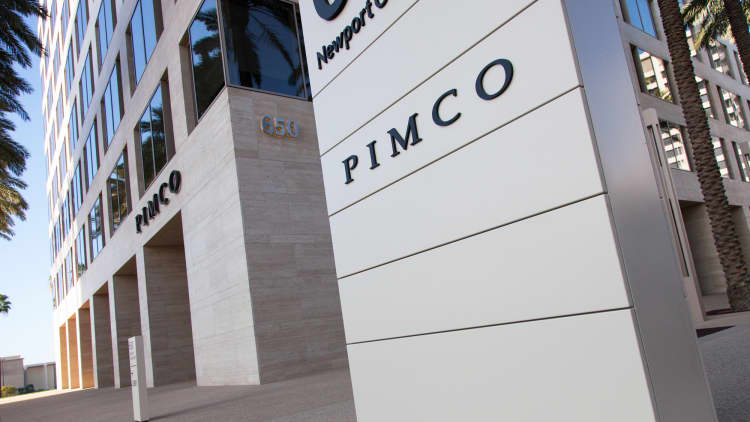
Investors should expect a lot more market volatility in the coming months, Pimco's Scott Mather told CNBC Tuesday.
"We always do around important turning points in monetary policy, and of course this time it's happening in the context of a record divergence in monetary policy," the firm's chief investment officer of U.S. core strategies said in an interview with "Closing Bell."
Mather believes the Federal Reserve will begin to tighten this summer, and with other central banks like the European Central Bank and the Bank of Japan moving in the opposite direction, "that really is a recipe for increased financial market volatility," he said.
On Tuesday, stocks closed more than 1.5 percent lower, with the Dow Jones industrial average sinking more than 300 points. Just a day earlier, the Dow closed up more than 135 points.
Read More Pressured by dollar, Dow dives 332 points
The market is facing several headwinds, including the stronger dollar, which will weigh on earnings, Mather said.
"We think the dollar will still continue to strengthen at a 5 to 10 percent annualized clip for some time," he noted.
In addition, he thinks labor market tightness will lead to higher wages, which will also drag on earnings.
Read More Expect 5-10% market correction: Expert
Meanwhile, Mather expects low yields to continue in Europe. In fact, he said he thinks it's very possible the 10-year German Bund could turn negative.
That's because while the goal of the European Central Bank's quantitative easing policy is to raise inflation expectations, it's a good distance off thanks to the slack in the labor market, he said.
"In the meantime, of course the ECB is buying more than the new supply of issuance in so many countries," Mather added. "That it is going to pull down yields substantially and we think there's more room to go lower from here."
He also thinks the foreign interest in U.S. fixed income will keep yields lower longer despite the fact that interest rates are going to be slowly creeping up beginning in the summer.


